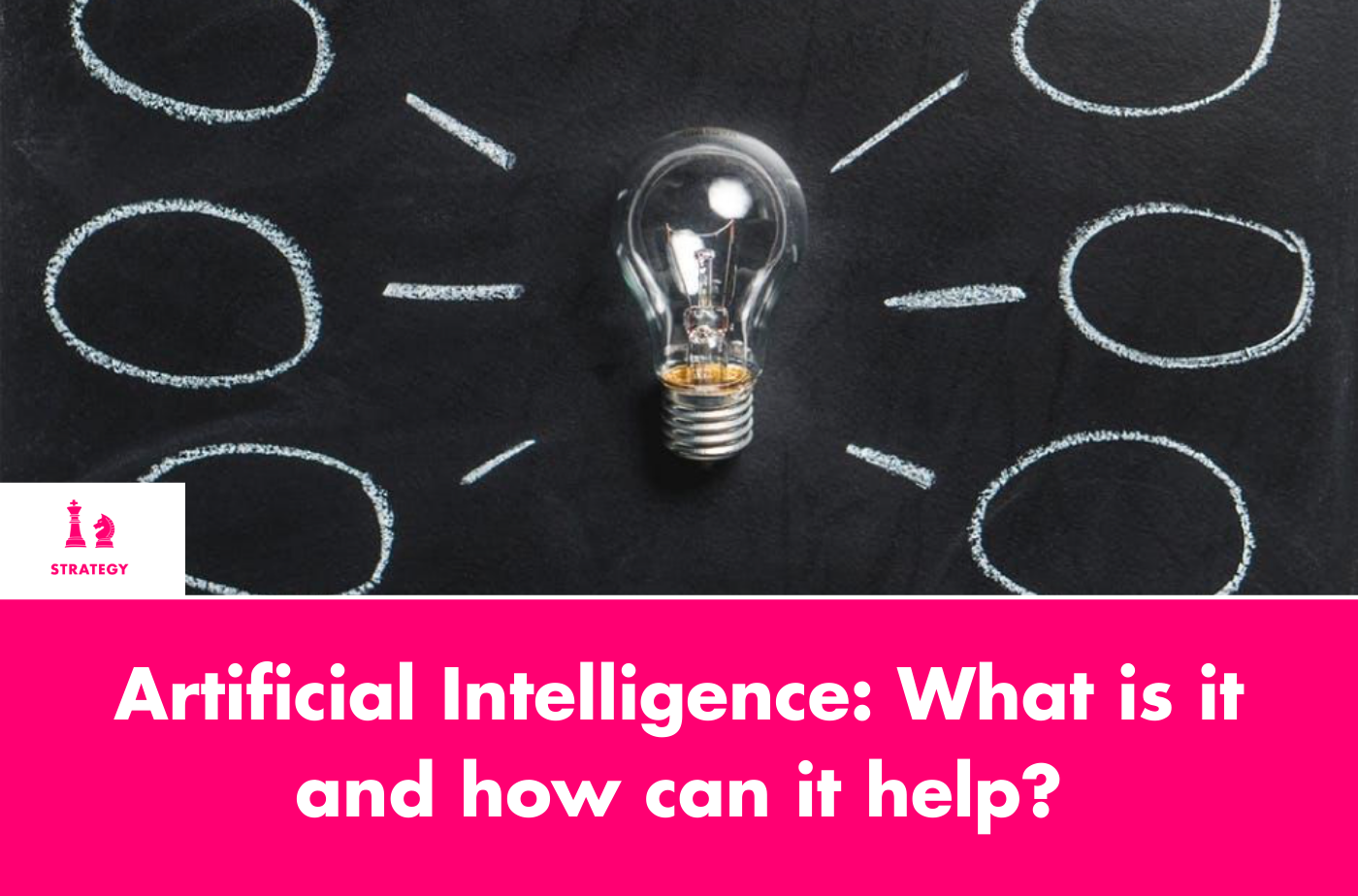Artificial Intelligence: What is it and how can it help?
Scrolling through twitter, it seems as though every business account is talking about artificial intelligence (AI). But what is it, and why are so many companies adapting it into their business models?
Well, it all started in the 1950s, when scientists stumbled upon the idea of artificial intelligence in evaluating the ways humans think. One scientist in particular, Alan Turing, suggested that if humans were able to use information available to them as well as logic and reasoning to accomplish a task and solve problems, why couldn’t “intelligent” machines do the same thing? But Turing’s advanced idea needed to take a pause until technology caught up.
Now fast forward five years to the Dartmouth Summer Research Project on Artificial Intelligence. Here, Allen Newell, Cliff Shaw, and Herbert Simon’s new program, the Logic Theorist, realistically represented the ways in which humans solve problems. At this event, McCarthy coined the phrase “artificial intelligence” used to describe the program today. This momentous event is where the spark was truly ignited to further develop AI.
In the years 1957 to 1975, artificial intelligence grew at rapid rates, allowing computers to store more information than ever before. This growth also made using AI far more economic and time efficient. With each new success, researchers were receiving more money from government funded agencies to develop new sects of AI.
In the 1980s, with the help of a large financial contribution, computer scientist Edward Feigenbaum produced “expert systems,”which simulated the process of decision making from a human expert. The program recorded the responses of an expert in any particular field on how to behave in a certain situation. Once nearly every situation was covered, non-experts received the advice recorded from the program.
From chess playing to speech recognition, programs became more and more humanoid in the 1990s and 2000s, including Kismet, a robot that could recognize and display emotions.
Some notable skills AI have developed in the most recent years include painting a Van Gogh, predicting the outcome of human rights cases with 79% accuracy, creating recipes, and playing soccer rather poorly.
In the business field, the possibilities of applying AI are infinite. One application that several companies are using is software called Apptus which gives suggestions on how to boost sales. It compiles this information by combining data and machine learning to ascertain what a customer may be drawn to while searching online.
Where as Apptus gives suggestions directly to a company, another application of AI, Chatbots, is a type of software that is designed to have a back and forth conversation with a human. Chatbots can be applied to a variety of different tasks such as personalizing answers to individual customer questions, automating answers to repetitive questions, and lessening wait times for customer service.
Another area where Artificial intelligence plays a powerful role in time efficiency is Human Relations. HR is a department that could benefit greatly from AI for two simple reasons: there is a plethora of quality data in HR, and HR is both essential and yet feels the pressure of time, especially in the area of recruiting. Data companies are creating algorithms that have the ability to collect the best candidates for a job and predict the probability of if the candidate will leave their current job, a very important skill considering 95% of the most qualified candidates are not actively looking for a job.
As technology advances to benefit companies, so does malware that can hold back development. With cyber attacks becoming more and more common, specialized tools to prevent them have become all the more necessary. Top firms around the globe are investing in cybersecurity to prevent and defend against cyber attacks. Using machine learning algorithms and a whole lot of data, security specialists can teach the machines to monitor behavior, detect abnormalities, and adapt to quickly respond to threats to digital security.
The speed of digital cyber security systems is no match for the changes in the ever quickening pace of business. In an era where a digital request for a car service arrives in seconds and a five star meal can be delivered to your sofa, consumers have gotten used to a speedy request and response process. Artificial intelligence allows businesses to use the data at its disposal to make improvements to match these developments along their supply chains. Self powering trucks and robotic picking systems allow businesses to operate and deliver 24/7, rapidly erasing the idea of “business days” as we know it.
These 24/7, AI powered deliveries can even contain products individually curated for users by AI software. Shopping online creates a path of “digital breadcrumbs” that AI can use to generate personal website ads based on user search history previously purchased products. AI-powered personalization is swiftly becoming the most compelling way to adapt website content and product suggestions to customers preferences. According to eMarketer’s “Personalization in Retail: The Latest Trends and Challenges,” 48% of marketers found that their personalization efforts resulted in a lift of profit of at least 10 percent.
Another major plus for marketers has been the growth in capabilities of data analytics. Currently, predictive analytics (the use of stats and forecasting to predict the future) is the most prominent application for AI rather than prescriptive AI. At the moment, AI answers “What might happen?,” but as technology continues to progress AI will begin to answer “What should happen?”

BOSTON, MARS




